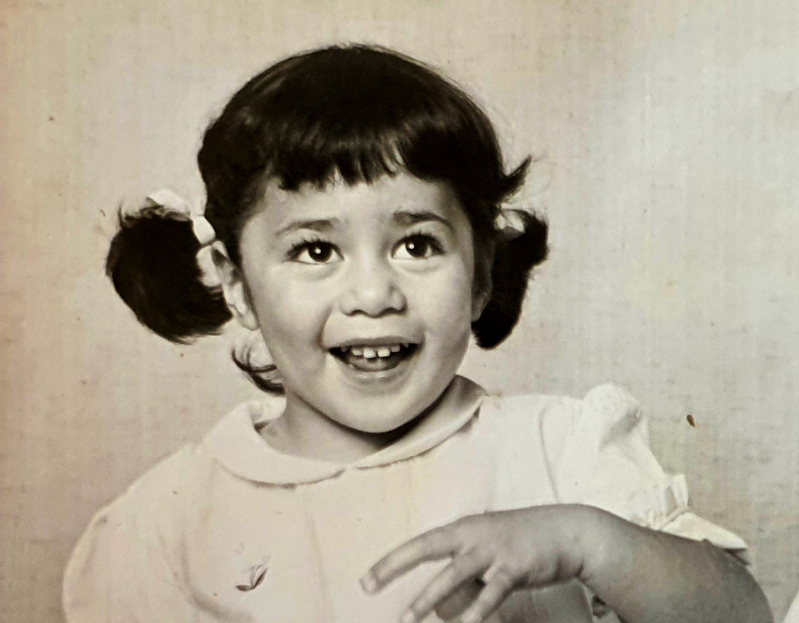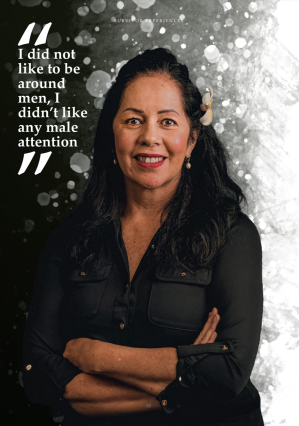
Following the publication of the Abuse in Care report by the Royal Commission of Inquiry, Frances Tagaloa has watched with painful interest as the news media put a spotlight on the stories of abuse and neglect suffered by countless vulnerable and children in care of state and faith-based institutions in New Zealand.
Tagaloa is one of the many who suffered at the hands of Catholic clergy, sexually abused “multiple times” as a little girl. Her testimony is one of more than two thousand survivor's accounts that the Inquiry recorded.
Some 200,000 vulnerable children, youth and adults, out of 650,000 in care during the period were abused, and “even more were neglected,” according to the report, which also stated that leaders of faith-based institutions tried to cover up abuse by moving abusers to other locations and denying any involvement.
They “knew, or should have known about the abuse and neglect that was happening. They failed not only in their duty to keep people in their care safe from harm, but they also failed to hold abusers to account,” the report said.
While perpetrators came from different ethnic and social backgrounds, the report highlighted, “They were also religious leaders including bishops, priests, religious sisters, religious brothers, deacons, lay people.” Among others, the settings included children’s homes and schools run by Anglican, Methodist, Presbyterian, The Salvation Army and Catholic churches, the report said.
In her comments to Christian Daily International, Tagaloa castigated churches for protecting themselves rather than serving the needs of abuse survivors and for their inability to offer appropriate apologies and support.
“This report shines a light on the institutional, systemic and pervasive abuse that most often targeted Maori and Pacific children, those from the Rainbow community, and people who were deaf or disabled,” said Tagaloa.
“But even being raised in poverty or being a family in crisis also made the children and individuals more vulnerable to being abused. Faith based settings were where some of the most heinous acts of abuse occurred and where sexual abuse was found to be most prevalent.”

Tagaloa found it hard to believe that abuse survivors had had to raise the issues publicly by returning to the church institutions, which had facilitated the abuse and neglect in the first place.
“It's incredible to me that survivors of abuse have to go back to the very institutions where the abuse was perpetrated to seek redress and put the harm right,” Tagaloa added. “Churches have shown through the Inquiry that they cannot stop abuse and they have found it difficult to put the harm right and provide survivors with redress. Even the most well-meaning churches and religious institutions have protected themselves first and not prioritized survivors.”
In Tagaloa’s view, the appropriate remedy would be for an independent redress system to be created for faith-based and state-based survivors. She described this as a place that is safe, confidential and supportive for survivors embarking on the difficult journey of healing and “to put the harm right.”
“As a part of this redress system, churches should be willing to pay compensation to those who suffered abuse in their care too. Many survivors have life-long impacts. Some survivors have physical injuries or need ongoing medical support because of the impacts of abuse.
“Some survivors can not work full-time because the trauma and pain of the abuse lives with them every day. All churches should be willing to be part of the independent redress system to provide that compensation and redress and to put some of the harm right.”
Tagaloa also highlighted recommendations from the Commission for the leaders of the “perpetrating organizations” named in the report to publicly and properly apologize to survivors.
“One would expect meaningful apologies from the churches and their leaders would come naturally and easily, after all the church has the responsibility to share and model the message of reconciliation. Sadly, that has not been the case.
“Many survivors like myself have experienced no apology or a terrible email apology for the abuse we suffered in their care and we deserve a more appropriate, meaningful and survivor-focused apology.”
Tagaloa painfully recalled her own experiences of suffering “significant and life-long impacts of abuse”, including depression, sleeplessness and nightmare flashbacks. The fibromyalgia she suffered for years is possibly also linked to the trauma.
“If the Catholic church had taken action when they first discovered my perpetrator was abusing little girls then I would not have been abused as a five-year-old little girl. I would have experienced a different life. I need to hear the church take responsibility for their actions and inactions and to say they are sorry and mean it.”
Tagaloa said churches want congregations to be safe and cared for, and she noted a recommendation in the Abuse in Care report for a new care safe agency to monitor both faith and state agencies, and to administer any complaints.
“They [churches] don’t always have the knowledge to know what to do when it comes to abuse or to ensure they are doing everything they should to keep everyone safe. Nobody is monitoring them to see what they are doing.
“This care safe agency would have specific safety standards that can guide, monitor and assist the churches as well as keep our children and vulnerable safe. In my opinion, the care safe system will help churches do the work they have been called to in a more safe and supportive way.”
Tagaloa said that she had voiced her own disturbing experiences of abuse “because I don’t want this to ever happen again to anybody else.” She called the atrocities highlighted in the report “horrific”.
“This is our country’s shame, but we have an opportunity to help put the harm right.
“Churches can become a model of care, love and compassion again by supporting all these recommendations, which are a pathway to make a safer Aotearoa for our vulnerable, our tamariki (children) and our mokopuna (grandchildren).”
The Abuse in Care report is a “difficult read because it contains such horrific abuse”, said Tagaloa, adding that the truths of what happened were vital for knowing atrocities “that are our country’s shame.”
She said nonetheless that churches needed to hear the stories, "to acknowledge the abuse and evil done in God’s name."
“They need to be horrified, seek repentance and be willing to do what it takes for transformational change.”
Tagaloa recounted how she experienced “flashbacks” at university about the sexual abuse suffered at the hands of Catholic clergy as a little girl. But her husband, parents and family have been very supportive as she came to terms with what happened.
In a video entitled, ‘My story of Hope’ produced for Church Northwest, in Hobsonville Pt, NZ, Tagaloa recalled how finding a personal relationship with Jesus Christ changed her life and really helped her.
She acknowledges, however, that “the abuse I suffered deeply impacted me for years.”





